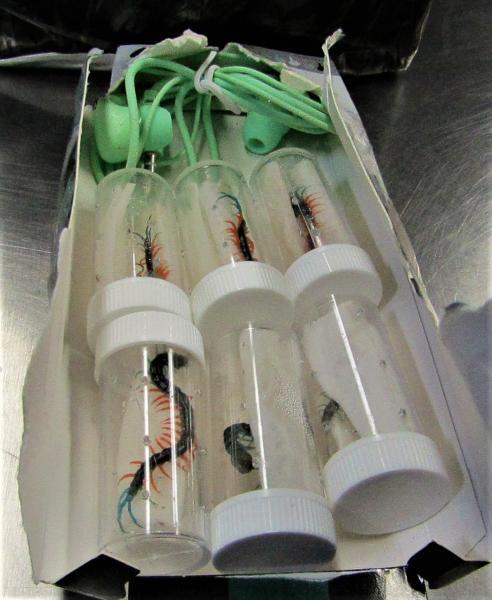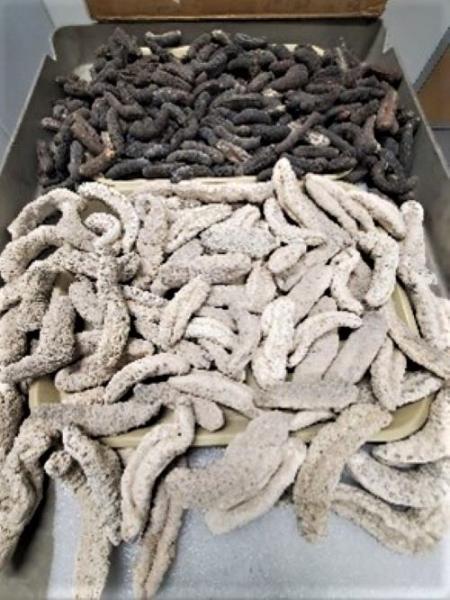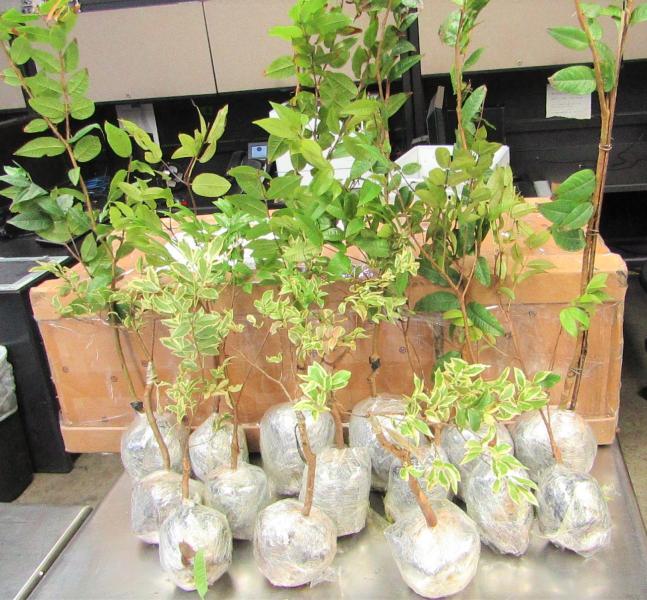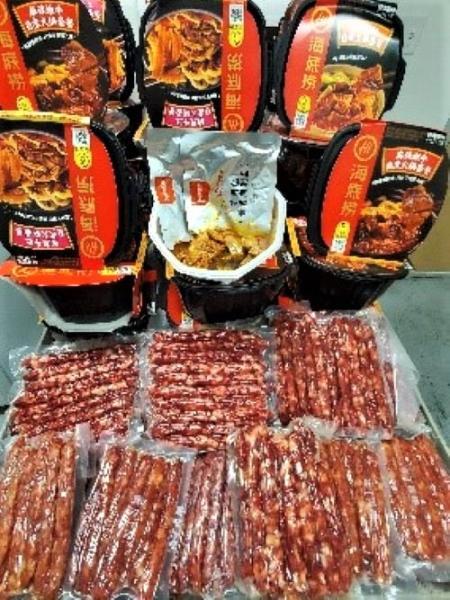
live centipedes concealed in earphone cases.
LOS ANGELES—On May 4th, U.S. Customs and Border Protection (CBP) Agriculture Specialists found something unusual while examining an air mail shipment declared as “earphones” arriving from Malaysia. When they opened the box, they discovered 26 vials containing live centipedes concealed in earphone cases.
Just a week before on April 27, they had intercepted a shipment arriving from Hong Kong with 28.6 pounds of dried sea cucumbers declared as “dried food”. On May 3rd, they stopped 15 unknown live propagative plants with soil, declared as “plastic flowers” arriving from China and recently on May 5th, they discovered over 55 pounds of noodles with ruminant ingredient and swine sausage products manifested as “packaging box.”

pounds of dried sea cucumbers was
declared as “dried food”.
What do these four shipments have in common? They lacked the required official permits or certificates. These violations are a less-known form of contraband arriving every day from overseas in ocean containers and postal and express air mail to destinations all over the United States.
In fiscal year 2020, Los Angeles Field Office issued 2,695 Emergency Action Notifications (EAN) compared with 4,665 in in fiscal year 2021, this represents an increase of 73 percent from the previous year. When unmanifiested/prohibited animal products are intercepted, CBP issues an EAN to initiate the destruction or re-exportation of the contraband.
“The illegal importation of plants and animal products could introduce foreign pests and diseases threatening the United States vital agriculture industry,” said Carlos C. Martel, CBP Director of Field Operations in Los Angeles. “These unprecedented numbers reflect the critical role of CBP’s agriculture specialists in identifying and intercepting these shipments.”

propagative plants with soil,declared as
“plastic flowers” arriving from China.

ruminant ingredient and swine sausage
products were manifested
as “packaging box.”
The live centipedes and the dried sea cucumbers shipments were referred to U.S. Fish and Wildlife Service (FWS) for investigation and final determination. The FWS requires a license to trade in wildlife and possibly additional permits if the species is protected.
The propagative plants, the ruminant noodles and swine sausages were destroyed under USDA and CBP supervision using steam sterilization.
“Unregulated animal products from overseas are in high demand and smugglers attempt to smuggle those products into the United States for profit without regard to consumer safety or potential damage to the agriculture industry,” added Mr. Martel.
Many consumers are not aware of the importation restrictions.
Pork products from African Swine Fever (ASF) affected countries may introduce the virus to the United States, crippling the domestic pork industry and U.S. pork exports valued at $6.5 billion annually. The ASF is spread by contact with an infected animals’ body fluids. It can be spread by ticks that feed on infected animals.
USDA – APHIS Resources:
About CBP Agriculture Mission:
Agriculture is the largest industry and employing sector in the U.S. with more than 1 trillion of economic activity annually. The greatest risks of success of this industry are exotic plan pests and foreign animal diseases. On a typical day in fiscal year 20121, CBP agriculture specialists intercepted 264 pests at U.S. ports of entry and 2,548 materials for quarantine: plant, meat, animal byproduct, and soil. Learn how CBP protects American Agriculture.